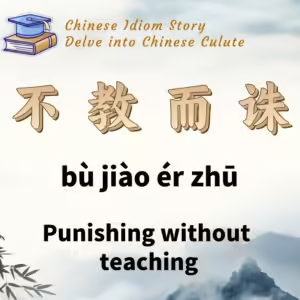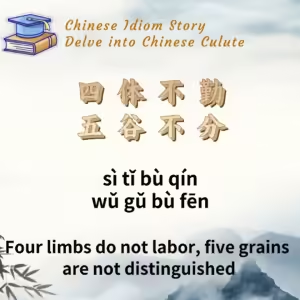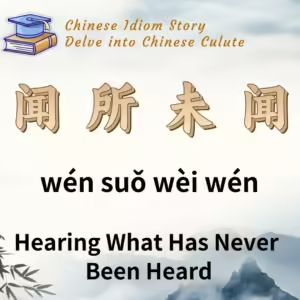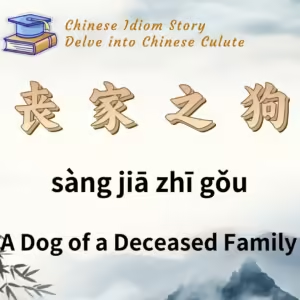
Chinese Idiom: 不教而诛 (Bu Jiao Er Zhu)
English Translation: Punishing without teaching
pīn yīn: bù jiào ér zhū
Idiom Meaning: This idiom refers to punishing someone without first educating or instructing them on the rules or expectations. It criticizes the practice of imposing penalties or severe consequences on individuals who have not been given a fair chance to learn or understand what is required of them.
Historical Source: Lúnyǔ · Yáo Yuè (《论语·尧曰》), a classic text of Confucianism, containing the teachings of Confucius and his disciples.
Idiom Story:
The idiom “不教而诛” originates from a dialogue in The Analects of Confucius. In one of the discussions, Zizhang, a disciple of Confucius, asked his master how to govern well. Confucius responded by outlining five virtues and four misdeeds that a ruler should be aware of in governance.
The five virtues Confucius mentioned were: benefiting the people without incurring costs to oneself, making people work without causing resentment, being desirous but not greedy, being magnanimous without being arrogant, and being dignified without being fierce.
Zizhang was particularly curious about the idea of benefiting the people without personal cost and asked for clarification. Confucius explained that this meant giving the people what they deserved, which wouldn’t cost the ruler anything. When people are asked to work in line with their responsibilities, there is no reason for them to complain. When a ruler desires virtue and achieves it, there is no need for greed. Treating people with respect, regardless of their status, without arrogance, shows true magnanimity. A dignified ruler who maintains proper conduct naturally inspires respect without resorting to intimidation.
Zizhang then inquired about the four misdeeds in governance. Confucius responded:
- “不教而杀谓之虐” (bù jiào ér shā wèi zhī nüè): It is tyrannical to execute someone without first educating them on what is expected.
- “不戒视成谓之暴” (bù jiè shì chéng wèi zhī bào): It is cruel to expect results without giving prior warning or guidance.
- “慢令致期谓之贼” (màn lìng zhì qī wèi zhī zéi): It is irresponsible to set loose rules but demand strict deadlines.
- “犹之与人也,出纳之吝谓之有司” (yóu zhī yǔ rén yě, chūnà zhī lìn wèi zhī yǒu sī): It is petty to give with reluctance, holding back what is due.
The phrase “不教而杀谓之虐” (bù jiào ér shā wèi zhī nüè) was later shortened and evolved into the idiom “不教而诛,” highlighting the injustice of punishing without first providing the necessary guidance or education.
This idiom serves as a reminder that fair treatment requires that individuals be given the opportunity to understand expectations and rules before they are held accountable for their actions.






